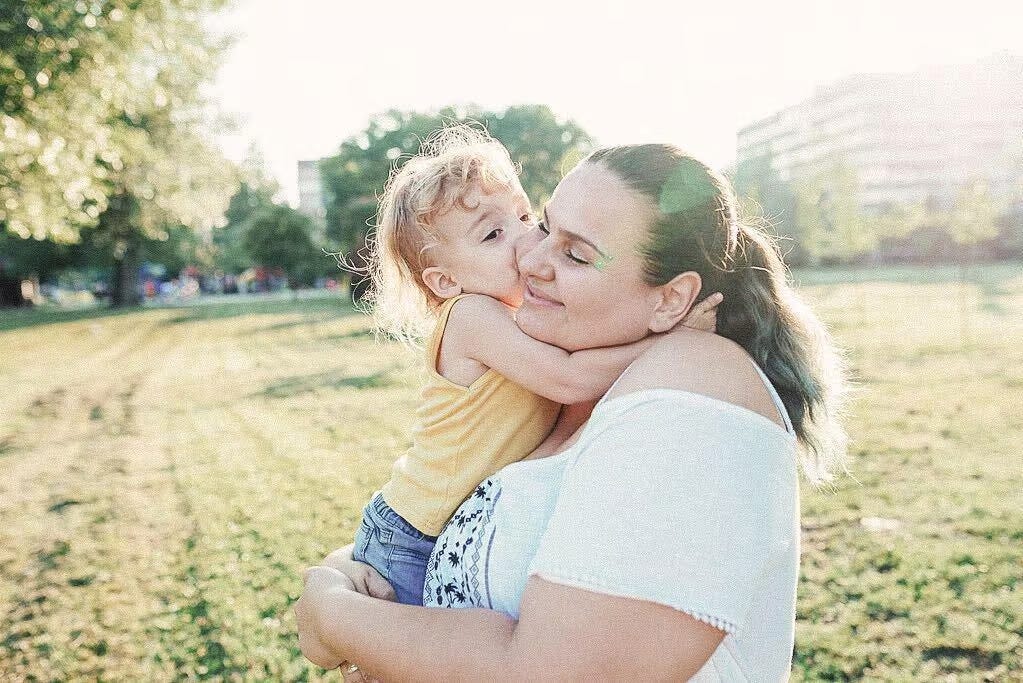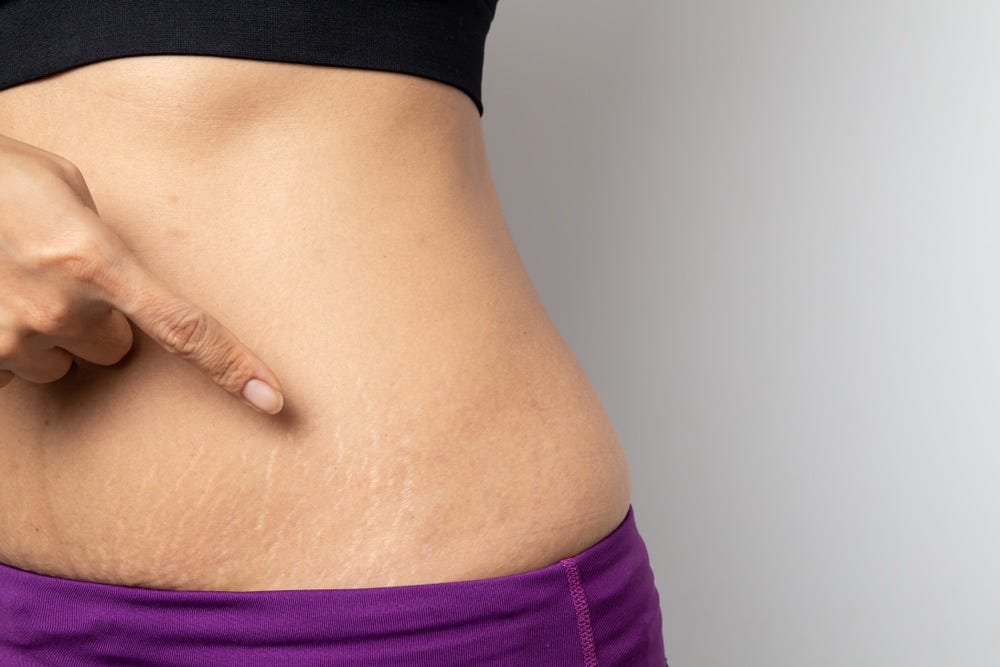[Blog] Ep 65. Feel Good in Your Mom Bod: 5 Practical Tips to Love Your Body after Birth
ft. Rinie and Sanchita
Introduction to the Mom Bod Series
Motherhood transforms us in ways that words can hardly capture. Along with the sleepless nights, messy buns, and overflowing laundry baskets, comes another big shift—the way we see and feel about our bodies.
In the Modern Indian Parent Podcast, hosts Rinie Gupta (pediatric sleep consultant) and Sanchita Daswani (pediatric nutritionist) kick off their Mom Bod Series—a heartfelt and deeply personal set of conversations that explore how women can learn to embrace, accept, and even celebrate their postpartum bodies.
Rinie mentions that this topic is close to her heart because she struggled with body acceptance long before pregnancy. After giving birth, the criticism and expectations only intensified. Looking back at the first six months of motherhood, she regrets hiding from photos and videos with her baby because she never felt “good enough” to be captured in them.
Sanchita adds that even women who are naturally slim have their struggles. For her, food became an emotional crutch, and it took years to reframe her relationship with nourishment versus indulgence. These honest admissions set the tone: postpartum body image issues are not just about weight, they’re about the stories we carry and the pressures we face.
Struggling to Love and Own Mom Bods
Rinie describes the irony of pregnancy in Indian culture: while expecting, women are told to eat more laddus, nuts, ghee, and milk. But the moment the baby arrives, the narrative flips. Suddenly, the pressure is all about “bouncing back.” She recalls an aunt openly asking her on a family video call when she planned to lose all her baby weight, just six months postpartum.
Sanchita nods to this reality too. She says that often the struggle isn’t visible to others. People might see a skinny woman and assume she has no body issues. But in truth, body image struggles live inside us all, regardless of size.
Why are We So Critical of Our Bodies?
Why are modern moms more self-critical than previous generations?
Rinie suggests that part of the answer lies in how constantly we see ourselves. Our grandmothers only had a couple of mirrors in the house. They weren’t faced with their reflections all day long. In contrast, today’s moms are surrounded by selfies, Zoom calls, FaceTimes, and social media feeds. This “always-on” reflection creates an unnatural level of self-scrutiny.
We end up analyzing ourselves the way we’re wired to analyze others for survival cues, trust signals, or connection. But when those judgment skills turn inward, they become toxic.
Sanchita shares how self-sabotage often kicks in after happy occasions. Even when she’s enjoying food and receiving compliments, reviewing photos later makes her spiral into picking apart her appearance. It’s a cycle many moms will recognize.
Celebrating What Your Body Can Do, Not How It Looks
The first practical strategy Rinie shares is to shift focus from appearance to function. Instead of criticizing her arms for being “flabby,” she reframed them as strong arms that carry her baby, cook for her family, and allow her to serve clients. This small but powerful mental switch transformed her perception.
Sanchita applied the same practice to her legs. She had avoided shorts for years, embarrassed by her thighs. But when she started appreciating her legs for helping her chase after her kids and supporting her daily movement, she also found the confidence to show them off.
Both moms stress: reframing body parts for their usefulness and strength doesn’t mean abandoning fitness goals. It simply shifts the foundation from shame to self-love, making healthy changes more joyful and sustainable.
Change the Way You Talk About Your Body (Because Your Kids Are Listening!)
Words matter, especially when our children are listening.
Rinie says she made a conscious choice to stop speaking negatively about her body out loud. She never wanted her daughter to grow up hearing her mom say, “I’m fat” or “I look ugly.” Instead, she emphasizes positivity or stays neutral. She also sets boundaries with family members, discouraging negative comments about anyone’s appearance.
Sanchita reflects on how even kids face body shaming early. Her daughter, who is naturally slim, often hears comments about being “too skinny.” To counteract this, Sanchita reframes the conversation with her child: “Your body is so strong. Look at how high you can jump!” By focusing on function, she teaches resilience against external criticism.
The takeaway? If you wouldn’t say it to your child, don’t say it about yourself.
Reframing Stretch Marks into Tiger Stripes
Few body changes cause as much angst as stretch marks.
Rinie admits she avoided maternity photos because she was ashamed of hers. Over time, she reframed them as “tiger stripes”—symbols of strength and survival. Instead of shame, they became marks of power, proof that her body endured the immense journey of pregnancy and childbirth.
Sanchita adds that she, too, had stretch marks even before pregnancy. For years, they kept her from wearing swimsuits. Only recently has she embraced them, inspired by women abroad who confidently wear bikinis of all sizes and shapes. She now owns her body without apology, and she encourages other moms to do the same.
Why Quick-Fix Diets Fail and Lifestyle Changes Win
Crash diets are tempting, but both hosts caution against them.
Rinie recalls dropping 12 kgs in three months through an extreme calorie deficit. While the quick results thrilled her, the weight quickly returned. Worse, she lost muscle and felt weaker. Now, she focuses on sustainable lifestyle changes—eating more protein, strength training, and allowing progress to be gradual.
Sanchita mentions her cycle of hopping from one diet to another—Herbalife, restrictive meal plans, fad cleanses. Each worked temporarily but ended in weight gain and frustration. What finally worked was listening to her body, nourishing it properly, and building consistency through accountability with a trainer.
Both agree: aim for habits you can keep for life, not short-term fixes.
Seeking Help is Not a Sign of Weakness
Motherhood often tricks women into believing they must “do it all alone.” But asking for help is powerful.
Sanchita describes how hiring a trainer changed her consistency. Knowing someone was expecting her three days a week kept her committed. She emphasizes that support systems—coaches, nutritionists, accountability partners—are investments in health, not luxuries.
Rinie echoes this, sharing how even online personal training gave her the push to stay on track. She reminds moms that seeking professional support for physical health is just as valid as seeking medical care for any other condition.
Therapy for Deeper Healing of Body Image Struggles
Sometimes, body image struggles run deeper than food or fitness.
Rinie stresses that many insecurities start in childhood—from relatives’ comments about weight, skin tone, or height. Pregnancy only magnifies them. That’s why therapy can be transformative. She describes it as “a doctor for your brain,” offering a safe space to unpack long-held beliefs and self-criticism.
Therapy helped her break patterns of stress-bingeing and replace them with healthier coping strategies. She encourages moms to see therapy not as weakness but as a powerful tool for inner healing.
Sanchita agrees, adding that body acceptance is as much emotional as it is physical. She reminds moms that mental wellness is part of overall health—and deserves equal attention.
Final Thoughts
Postpartum body image isn’t just about numbers on the scale. It’s about the quiet conversations in your head, the words you speak in front of your kids, and the memories you allow yourself to be a part of.
As Rinie and Sanchita suggest, here are five practical tips every mom can start practicing today:
Celebrate what your body can do—not how it looks.
Change your self-talk—your kids are listening.
Reframe stretch marks as tiger stripes—symbols of strength.
Focus on lifestyle changes, not crash diets.
Seek support—trainers, coaches, therapists. Help is strength, not weakness.
Above all, remember this: your mom bod tells the story of love, resilience, and life itself. Own it, honor it, and let it shine.





